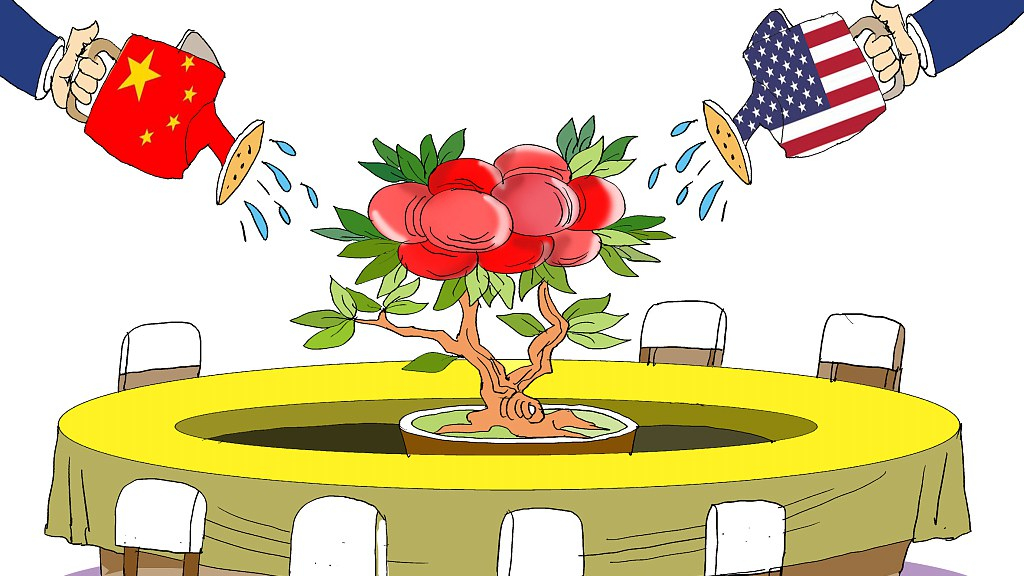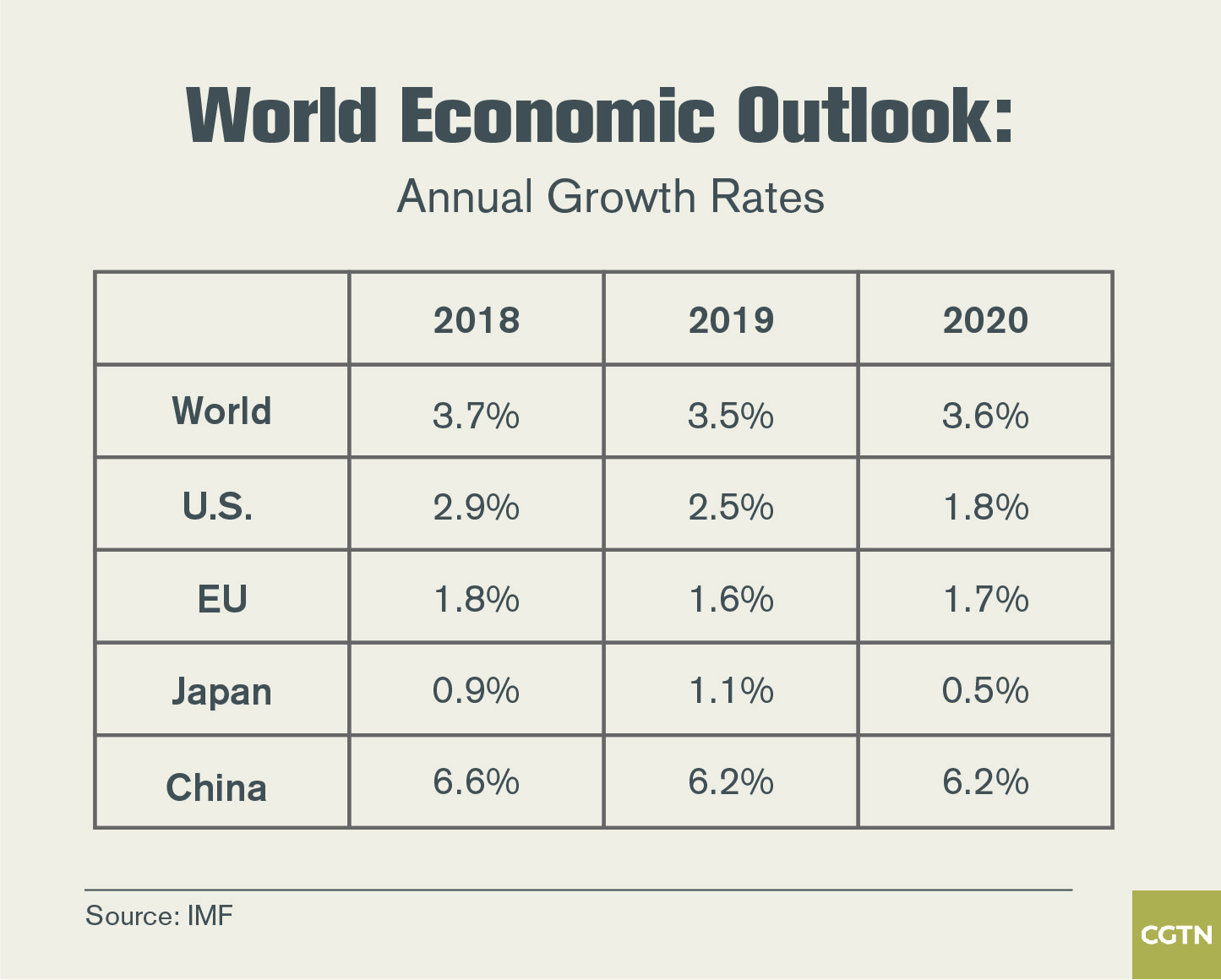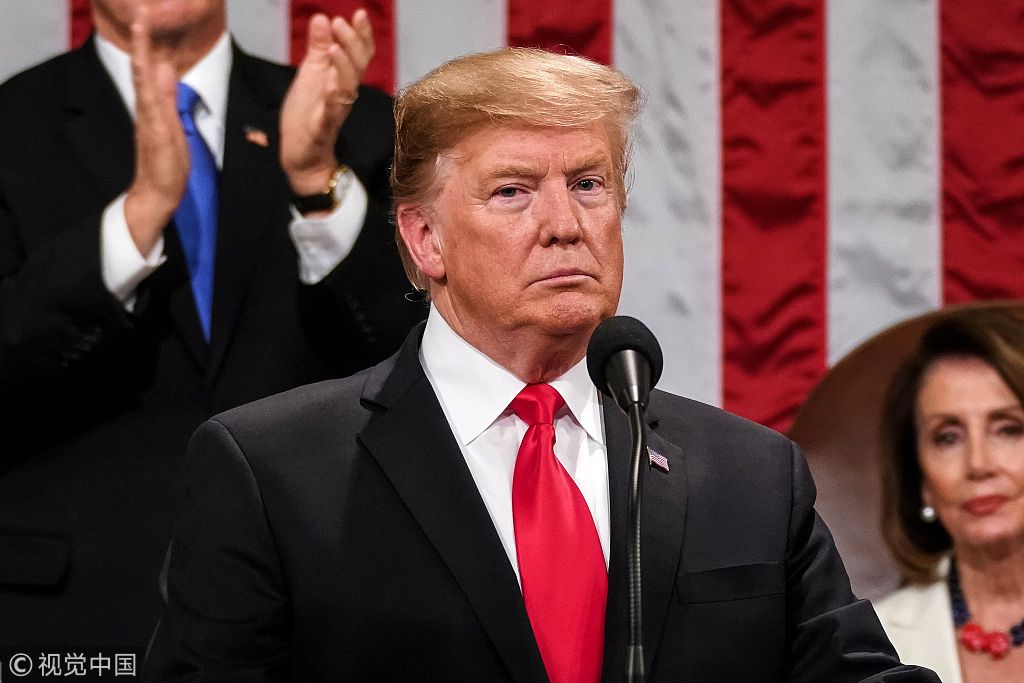
Opinion
10:08, 11-Feb-2019
Will a deal emerge to end the China-U.S. trade war?
Updated
10:06, 12-Feb-2019
Ken Moak

Editor's Note: Ken Moak, who taught economic theory, public policy and globalization at the university level for 33 years, co-authored a book titled "China's Economic Rise and Its Global Impact" in 2015. The article reflects the author's opinion, and not necessarily the views of CGTN.
After two rounds of negotiations since U.S. President Donald Trump and Chinese President Xi Jinping reached a 90-day truce on December 1, 2018, optimism is in the air. Both sides have struck a positive tone. China even surprised Trump by pledging to buy an additional five million tonnes of American soybeans as a gesture of goodwill.
Negotiations on all major U.S. concerns – trade deficits, "forced" technology transfer, intellectual property protection, and market access – are going well. In this vein, U.S. Trade Representative Robert Lighthizer and Treasury Secretary Steven Mnuchin are heading to Beijing for a third round of talks.
There are also reports that Trump might meet Xi after talking with Democratic People's Republic of Korea (DPRK) leader Kim Jong Un in Vietnam. The U.S. president urgently needs a policy "win" to boost the chances of getting re-elected and divert domestic attention away from his personal and political problems.

The trade war with China is costing the U.S. a lot of money. /VCG Photo
The trade war with China is costing the U.S. a lot of money. /VCG Photo
The Democrat-controlled House of Representatives plans to investigate Trump's personal dealings, from tax evasion to his alleged role in the Russiagate scandal. In light of Trump's coming tough "battle" with the Democrats, ending the trade war could give him some "breathing room."
Trade war makes no eco-geopolitical sense
The trade war, taking its toll on the U.S. and China, should not have started in the first place. As things stand, everyone is hurt by it.
For example, General Motors, one of America's largest car manufacturers, is restructuring its operations. It is laying off 4,000 salaried employees in 2019 and closing five plants in North America which could put thousands of more workers on the unemployment line, according to media reports.
China is also one of the first to bear the brunt. Even though exports to the U.S. account for only four percent of the Chinese economy, the trade war has undermined investors' confidence. This may eventually lead to an economic slowdown.
Eco-geopolitically, the trade war is hurting the world's most important pair of bilateral relations. The two largest economies are intrinsically linked: China is both the "factory" and "market" of the United States, and the United States is China's biggest trading partner. Moreover, no major world issues – security, climate change, trade, and financial reforms – can be addressed without the two countries' participation.
It would be naive to suggest that Trump and his senior officials had not anticipated the outcomes of the trade war. The International Monetary Fund (IMF) predicted that all economies would be harmed in the next two years if the trade fight persists.
Below is an example of the IMF's projections. Other developed and emerging markets, perhaps with the exception of India, are also expected to face strong headwinds in the forecast period.

Anti-China sentiment on the rise
Equally important to note is that the trade war has increased the level of anti-China sentiments, a result of Washington's fake news propaganda.
Allegations that China is stealing American jobs do not hold water. Rising unemployment in the U.S. is attributed to automation and businesses relocating manufacturing abroad.
While the U.S. and its Western allies looked down upon China, the socialist country is gradually catching up to the West economically, militarily and technologically, stroking fear in the heart of many Americans.
Wary of China's rise, Americans are easily misled by the fake news spread by the government and so-called scholars.
According to the 2018 Pew Research Center, 83 percent and 82 percent of Americans believe China's "unfair" trade practices are responsible for the loss of jobs and deficits respectively.
A higher percentage, 87 percent, think China is spying on the United States, despite no evidence supporting such allegations. Fear-mongering is working.
A fundamental deal easier said than done
In his State of the Union address on February 5, Trump stressed the importance of structural changes in China.

Trump delivers the State of the Union address at the U.S. Capitol in Washington, February 5, 2019. /VCG Photo
Trump delivers the State of the Union address at the U.S. Capitol in Washington, February 5, 2019. /VCG Photo
Experts believe this is demanding China to abandon its "socialism with Chinese characteristics," something the Asian giant cannot and should not surrender.
History will tell that the U.S. will invent other excuses to end the agreement even if China meets all of its demands.
In fact, China appears to be in a stronger position to withstand the tariffs, in that exports to the U.S. account for only four percent of its GDP. This relatively small amount could be sold to China's huge domestic market and its growing number of trade partners.
The U.S., on the other hand, is feeling the "heat" of Trump's trade war. According to a recent CGTN report, the tariffs would reduce its GDP by 0.37 percent and real family income by over 750 U.S. dollars, while cutting 950,000 jobs.
Given the above economic and political implications, the U.S. Congress is pressing Trump to abandon the tariffs and reinstate the North American Free Trade Agreement. It is hoped that the Trump administration can make the right decision in the upcoming trade talks.
(If you want to contribute and have specific expertise, please contact us at opinions@cgtn.com.)

SITEMAP
Copyright © 2018 CGTN. Beijing ICP prepared NO.16065310-3
Copyright © 2018 CGTN. Beijing ICP prepared NO.16065310-3